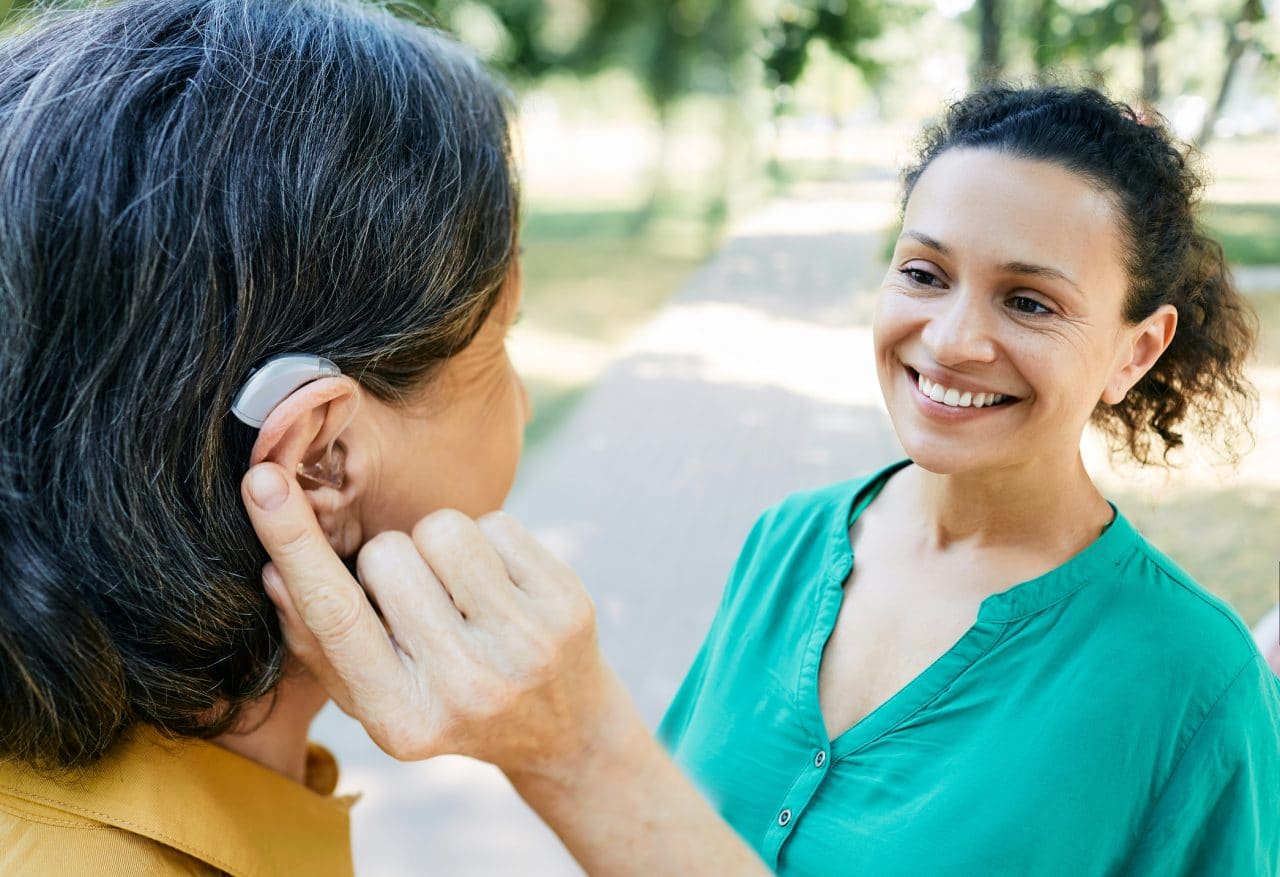Like many conditions, hearing loss exists on a spectrum. Some have severe or complete hearing loss that doesn’t respond to treatment. Others have much milder to moderate cases that may often go unnoticed by those around them.
Regardless of severity, it’s important to support people with hearing loss. Let’s examine a few of the best ways to do that.
Don’t Make Assumptions About Their Hearing Loss

People with hearing loss are often stigmatized. Don’t assume that someone who has severe hearing loss is less capable at doing their jobs or functioning in the world. They may need different accommodations than those without hearing loss, but this has nothing to do with their ability.
If someone informs you that they have mild or moderate hearing loss, don’t minimize their experience, or assume they don’t need support. The severity of a person’s condition does not necessarily correspond with their individual struggle.
Don’t Cast Doubt on Hearing Ability
Many people with hearing loss have what’s known as an invisible disability. This means their condition is not immediately apparent to other people. You may be surprised to find out a friend or coworker is hard of hearing.
However, it’s important to not let that surprise come across as casting doubt. Saying things like “I had no idea” or “You seem to hear just fine,” may unintentionally seem like you are minimizing their condition.
A large number of people with disabilities worry others won’t believe them when they disclose their condition. Data indicates that nearly 60% of Americans with disabilities feel that others question their disability.
This type of doubt can cause people to hesitate to disclose their condition. This adds extra stress to their lives and can keep them from accessing the full range of accommodations that may be available to them.
Do Ask How You Can Be Supportive
If someone confides in you that they have hearing loss, react supportively. Thank them for sharing. Ask if there are things you can do to make things easier for them.
It’s also helpful to consider their needs when planning events. Some things you can do include:
- Turn on the captions for any videos or virtual meetings whenever possible.
- Consider the noise levels of certain environments.
- Practice helpful communication strategies when speaking with them, such as turning your face towards them when you speak.
- When in doubt, ask. Reach out privately in advance of events to see if there is anything you can do to make it more accessible. For instance you could say, “Is there anything you need to make communication easier when we go out to dinner at Commerce Kitchen?”
Understanding the complexity and offering support to those with hearing loss means they’ll be more likely to feel comfortable asking for what they need.
If you find yourself concerned about your hearing loss, no matter the severity, call North Alabama ENT Associates and book an appointment today to get the help that you deserve.